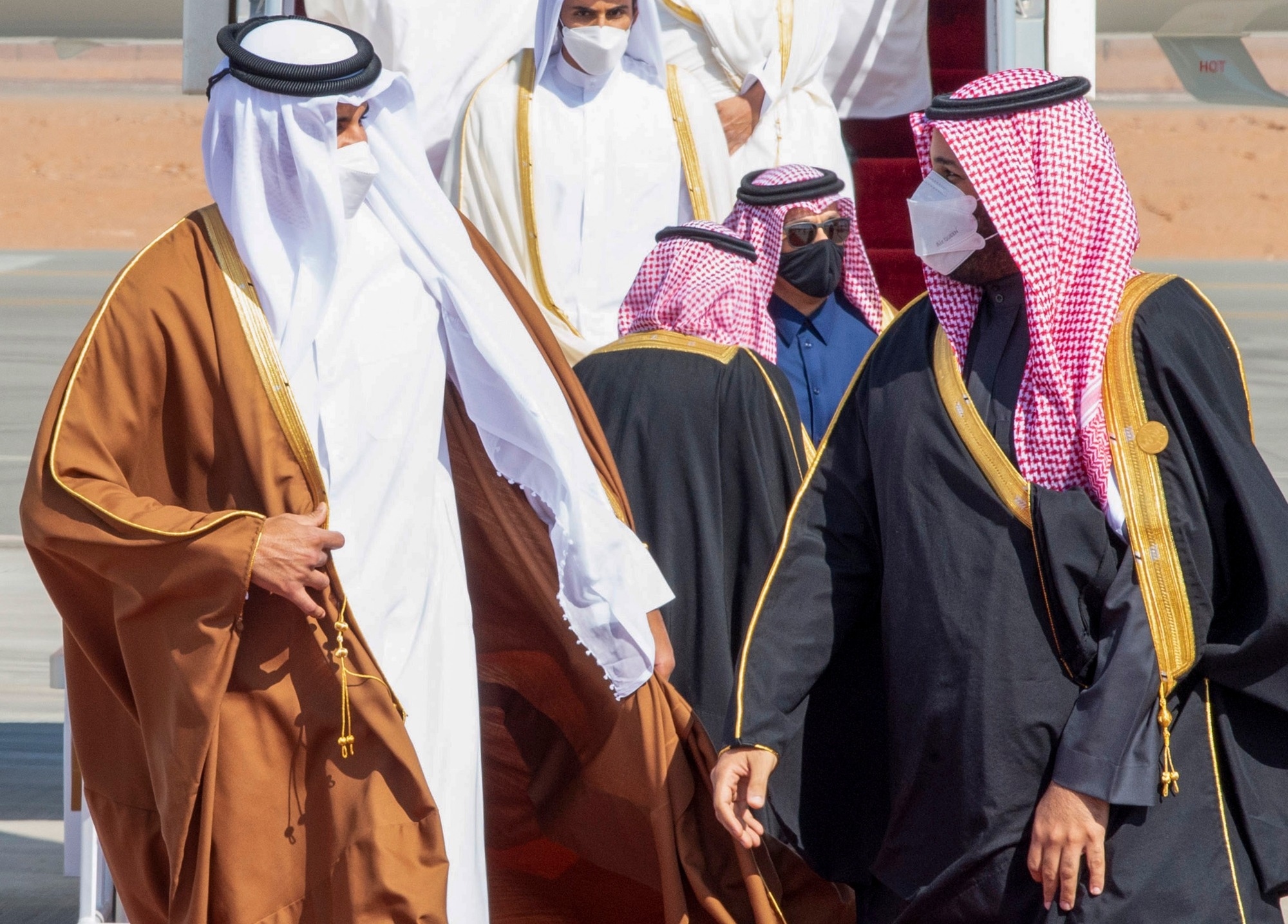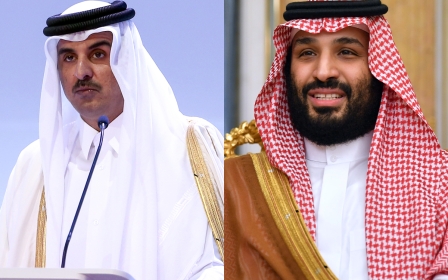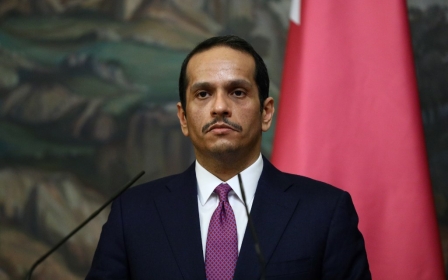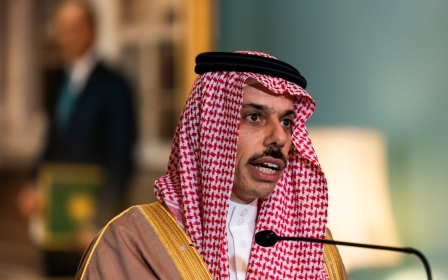Qatar blockade: Saudi crown prince embraces Qatari emir as GCC summit begins

Saudi Crown Prince Mohammed bin Salman embraced a mask-clad Qatari Emir Sheikh Hamid bin Al Thani ahead of a Gulf Cooperation Council (GCC) summit on Tuesday that will see an end to Riyadh's blockade on Qatar that started three-and-a-half years ago.
In 2017, Saudi Arabia, the United Arab Emirates, Bahrain and Egypt severed diplomatic, trade and travel ties with Qatar over claims that Doha supported terrorism, a charge the country has long denied.
But Riyadh on Monday announced plans to reopen its airspace, sea and land border to Qatar under a deal a US official told Reuters would be signed on Tuesday.
Kuwaiti Foreign Minister Ahmad Nasser al-Mohammed al-Sabah announced the breakthrough on Monday, ahead of Tuesday's summit where a broader resolution to the crisis is expected to be reached.
Sabah did not elaborate on whether the preliminary agreement between Qatar and Saudi Arabia would extend to the other blockading countries - the UAE, Bahrain and Egypt.
New MEE newsletter: Jerusalem Dispatch
Sign up to get the latest insights and analysis on Israel-Palestine, alongside Turkey Unpacked and other MEE newsletters
Other GCC members expected to attend the summit in the Saudi city of al-Ula include Bahrain, Kuwait, Oman and the UAE.
The Saudi crown prince - commonly known by his initials MBS - welcomed the breakthrough in the impasse on Monday, saying the kingdom's approach was based on enhancing "the ultimate interests of the Gulf Cooperation Council member states and the Arab countries".
"[The] Crown Prince reasserted that the upcoming GCC summit shall be a summit to close the ranks and unify the stance and to enhance the march of the good and prosperity," the kingdom's official news agency SPA said in a statement.
Diplomats and analysts say that Saudi Arabia was pushing for a deal in the hope it would show US President-elect Joe Biden that Riyadh is open to dialogue.
"Despite the purported rapprochement between Gulf parties, it is worth noting that this is seemingly influenced by a desire to preempt pressure from an incoming Biden administration, more than a genuine commitment to conflict resolution," Emadeddin Badi, a nonresident senior fellow at the Atlantic Council, told Reuters.
"As such, the detente within the GCC is very unlikely to significantly affect geopolitical dynamics beyond the Gulf."
Egyptian Foreign Minister Sameh Shoukry will take part in the summit, an official source told Reuters.
Both the UAE and Egypt are in dispute with Qatar over Libya and the Muslim Brotherhood.
The blockading countries intensified the crackdown on free speech at home during the crisis, often accusing dissidents of conspiring with Qatar.
In 2017, Egypt notably jailed the daughter of Doha-based imam Yousef al-Qaradawi and her husband without presenting formal charges against them. The couple remains imprisoned today.
In Saudi Arabia, renowned Islamic scholar Salman al-Odah was arrested in 2017 after sending a tweet praying for unity between Gulf leaders for the "good of their people". He too, remains in jail, despite longstanding campaigns calling for his release.
The Saudis' 13 demands for ending the blockade included stopping funding for a number of media organisations including Middle East Eye which Riyadh said Qatar supported.
MEE refuted the allegation at the time, as did the Qataris. No further attempts were made made by the Saudis to push this claim.
Middle East Eye delivers independent and unrivalled coverage and analysis of the Middle East, North Africa and beyond. To learn more about republishing this content and the associated fees, please fill out this form. More about MEE can be found here.




